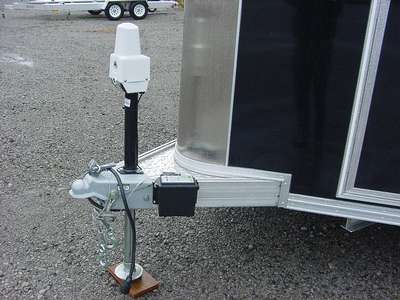Hello all !
I am currently thinking of my new solar system, but I have so many questions ... (and sorry If my english is not perfect I hope you would understand me right).
I hope you would understand me right).
I have decided to install in parallel 2 solar panels of 215W each (they have 72 cells).
I calculate the Voc and Isc (+10 % security) to define which MPPT I need. The numbers I get are : for the Voc 45,52 V and for the Isc 12,15a.
If I understand right, with these results I could use (for example) a MPPT victron 100/20, however on their website they say that this MPPT cannot be used for 430 w solar panel (the limit woud be 290 w with a 12v battery).
Can you explain me why ? I don't understand why we should calculate the Voc and Isc if we are limited by the maximal power of our solar panel anyway...
An other thing, is that somebody told me that I could go with the 20a MPPT anyway ... But if it gets limited at 290 w , there are some energy loss right ?
Also, I am wondering if I can go with epever. Are they still good quality products ?
Finally, I can't decide which battery capacity I'd like. I'm going to build a LifePo4 12 V battery, but I don't know if I go with 200ah or more ....
I know with 430w of PV it's going to be difficult to charge my battery, but I'd like to also charge it while driving. I am not sure the name of the equipment I need in english, if you could tell me My RV is euro 6, so I can't use the cyrix ones, if you get what I mean....
My RV is euro 6, so I can't use the cyrix ones, if you get what I mean....
So... any recommandations for my battery capacity ? Is it usefull to get more than 200ah , in case I wan't a backup for cloudy days ?
Is it usefull to get more than 200ah , in case I wan't a backup for cloudy days ?
I'll probably have new questions later.
Thank you so much for your help
I am currently thinking of my new solar system, but I have so many questions ... (and sorry If my english is not perfect
I have decided to install in parallel 2 solar panels of 215W each (they have 72 cells).
I calculate the Voc and Isc (+10 % security) to define which MPPT I need. The numbers I get are : for the Voc 45,52 V and for the Isc 12,15a.
If I understand right, with these results I could use (for example) a MPPT victron 100/20, however on their website they say that this MPPT cannot be used for 430 w solar panel (the limit woud be 290 w with a 12v battery).
Can you explain me why ? I don't understand why we should calculate the Voc and Isc if we are limited by the maximal power of our solar panel anyway...
An other thing, is that somebody told me that I could go with the 20a MPPT anyway ... But if it gets limited at 290 w , there are some energy loss right ?
Also, I am wondering if I can go with epever. Are they still good quality products ?
Finally, I can't decide which battery capacity I'd like. I'm going to build a LifePo4 12 V battery, but I don't know if I go with 200ah or more ....
I know with 430w of PV it's going to be difficult to charge my battery, but I'd like to also charge it while driving. I am not sure the name of the equipment I need in english, if you could tell me
So... any recommandations for my battery capacity ?
I'll probably have new questions later.
Thank you so much for your help



